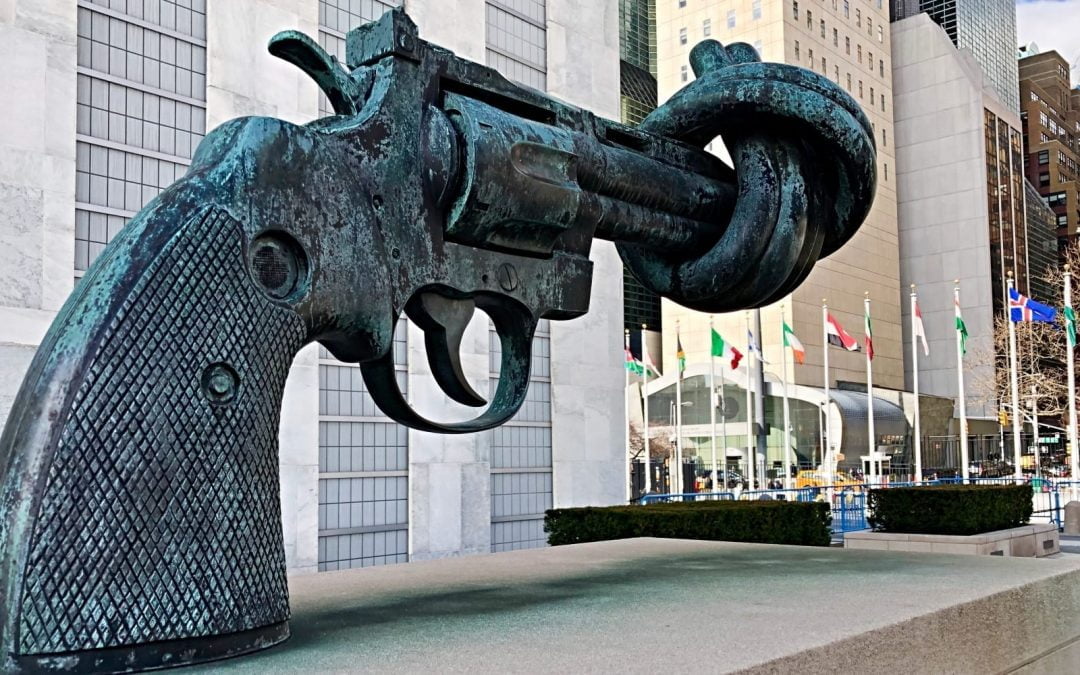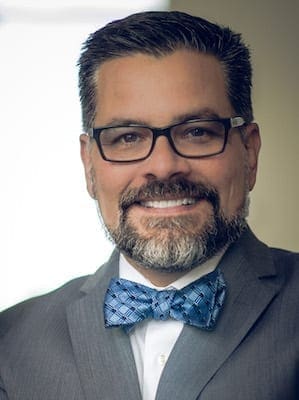United Nations General Secretary Ban Ki-moon said, “The world is overarmed, and peace is under-funded.”
At the 2019 Advocacy in Action meeting in New York City, the Cooperative Baptist Fellowship invited participants to tour the headquarters of the United Nations. During the tour, the group was introduced to the 17 Sustainable Development Goals.
All the goals strive to make life better for all people on the planet, but goal 17 specifically challenged governments to “seek peaceful and inclusive societies for sustainable development.”
A hindrance to this goal is the world’s reliance on armaments and weaponry. Every day, world governments spend $2.6 billion on military expenses. In 2018, governments spent $1.7 trillion on military expenses.
Compare that armament expense to the $8.6 billion spent on global hunger programs.
Experts point out that if $11 billion additional funds annually were targeted toward world hunger, the problem could possibly be eliminated by 2030.
Think about those numbers for a moment. If the world’s governments would cease military expenses for five days per year, then the global hunger crisis could be eliminated. As you can imagine, no one is volunteering to be the first nation to do so.
In front of the United Nations building, members and visitors are welcomed by a knotted-gun statue.
Created by Swedish artist Carl Fredrik Reuterswärd, the statue reminds people that the world should strive for peace at the cost of rejecting violence.
As a student and disciple of Jesus, this pathway toward peace is at the center of my theological conviction.
Jesus rejected meeting violence with violence. When arrested in the Garden of Gethsemane, Jesus condemned Peter when he struck out, “put your sword away, for those who live by the sword will die by the sword” (Mathew 26).
In addition to his condemnation of meeting violence with violence, Jesus instructed his followers to feed the hungry because when doing so, they were feeding him (Matthew 25).
Building upon his theological foundation of loving God and neighbor, Jesus clearly rejects violence against neighbor and embraces feeding neighbor.
How can we advocate for disarmament and feeding the hungry?
- Read the Bible and decide if you want to follow the path of nonviolence.
- Make a personal decision not to support private and societal armament.
- Contact your elected officials and let them know you oppose any legislative advancement of armament.
- Read the Bible and decide what Jesus says about feeding the hungry and helping the poor.
- Make a personal decision to get involved in a local or global program that feeds the hungry and advances programs for the poor.
- Contact your elected officials and let them know you want more funds directed to programs that feed the hungry and develop programs that empower the poor.
If the church can advance the way of nonviolence leading the world toward disarmament and can redirect resources addressing the hunger crisis in the world, we can bring the words of Isaiah to fruition: “They shall beat their swords into plowshares, and their spears into pruning hooks; nation shall not lift up sword against nation, neither shall they learn war any more” (Isaiah 2:4).


